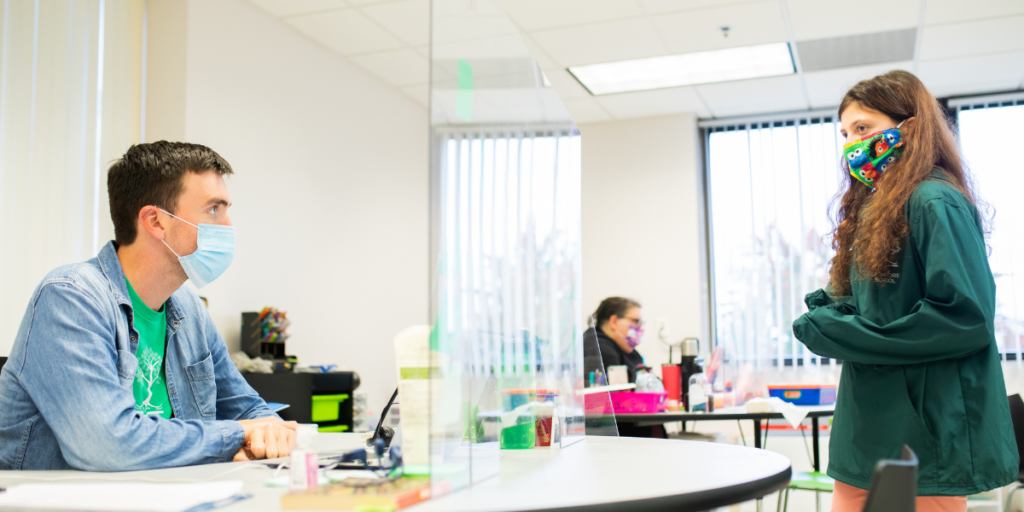A Beginner’s Mind

At The Sycamore School, we regularly participate in professional development training. They cover a wide range of topics over the course of a year from familiarizing staff with our on-line platforms, authentic assessment, and executive functioning supports, to anti-bias training and social-emotional skill-building.
Last week during our teacher workday, we had professional development training on Mindfulness, specifically Mindful Educators. This was the third workshop in a series facilitated by Erin Sonn, M.Ed, ERYT, YACEP, who is a yoga instructor and mindfulness coach. In this workshop, Erin introduced the idea of a beginner’s mind, a Zen Buddhism concept, which is similar to a growth mindset or having a blank slate – opening up our mind and freeing it from past experiences and preconceptions. When applied to learning, it’s the idea of approaching learning with openness and curiosity. For example, sometimes we approach a subject with preconceptions that color our experience; for example, we might say that we’re not good at math or that we already know how to write. Seeing learning through these lenses can prevent us from fully benefiting from the learning experience.
We were introduced to the concept of a beginner’s mind through a story from Zen Buddhism – A Cup of Tea.
A Cup of Tea
Once, a long time ago, there was a wise Zen master. People from far and near would seek his counsel and ask for his wisdom. Many would come and ask him to teach them, enlighten them in the way of Zen. He seldom turned any away.
One day an important man, a man used to command and obedience came to visit the master. “I have come today to ask you to teach me about Zen. Open my mind to enlightenment.” The tone of the important man’s voice was one used to getting his own way.
The Zen master smiled and said that they should discuss the matter over a cup of tea. When the tea was served the master poured his visitor a cup. He poured and he poured and the tea rose to the rim and began to spill over the table and finally onto the robes of the wealthy man. Finally, the visitor shouted, “Enough. You are spilling the tea all over. Can’t you see the cup is full?”
The master stopped pouring and smiled at his guest. “You are like this tea cup, so full that nothing more can be added. Come back to me when the cup is empty. Come back to me with an empty mind.”
When this concept was shared with our staff, we all viewed a beginner’s mind positively and were eager to share the concept with our students and practice it during our interactions with others.
Student Reaction to a Beginner’s Mind
After the positive response from staff, we expected the students to similarly embrace a beginner’s mind. Our students are generally open to new ideas and ready to try new things. However, when we shared this concept with our students, they had some very different reactions.
One student exclaimed, “You want us to have amnesia!” Others spoke about the risk that would come with having a beginner’s mind. Some students spoke about how our experiences give us valuable information that helps inform our future experiences. It felt risky and even foolish for them to approach an interaction with another with a beginner’s mind. While we were surprised by their responses, their arguments were valid and well thought out.
We are still reflecting on the meaning behind the different reactions to the concept of a beginner’s mind. We suspect it centers on different feelings around risk and vulnerability.
At TSS, we emphasize that taking risks and being vulnerable is how we connect to each other and learn. This messaging is conveyed both to the staff and our students. Being older and in a teacher’s role, perhaps the idea of a beginner’s mind is less daunting to our staff. To a teen, who is still working on their identity, friendships, and self-esteem, this may be too much of an ask. We will keep exploring the concept of a beginner’s mind and approaching learning with openness and curiosity throughout the year. Developing intellectual curiosity, independent thought, and a love of learning is central to what we do at The Sycamore School.
Learn more about our Three Core Roots and our approach to learning,
Posted in:
